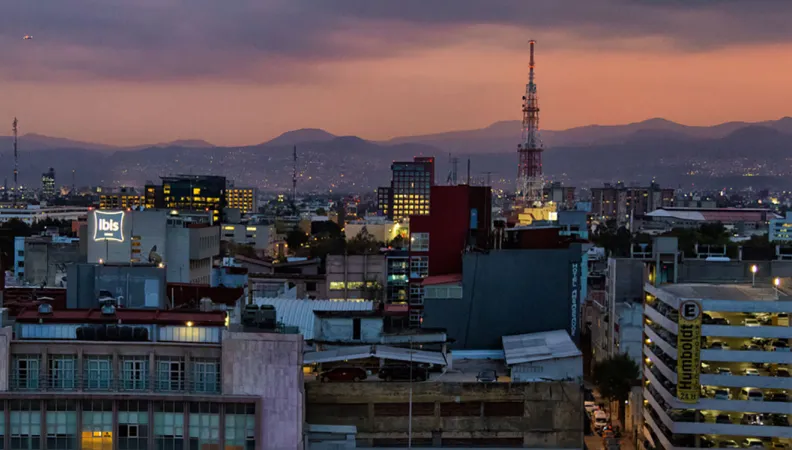Share the page
“Mexico is on its way to a major climate transition” – Jean-Baptiste Sabatié
Published on

On March 20, AFD and the Mexican Finance Ministry signed a new public policy loan agreement. This loan from AFD also marks the official start of a green and inclusive support program for Mexico. In a country hit hard by climate change, what are the issues being addressed by this program?
We find out in this interview with Jean-Baptiste Sabatié, Regional Director of AFD Mexico, Cuba and Central America, based in Mexico City.
To what extent is Mexico affected by climate change?
Jean-Baptiste Sabatié: The industrial boom enjoyed by Mexico in recent decades has been something of a double-edged sword: the country has risen to 15th place in economic terms, but is now also the world’s 13th-biggest CO2 emitter. In parallel, Mexico is more exposed than most to the effects of climate change. More than half of its territory suffers the consequences, such as rising temperatures, worsening drought, an increasing number of forest fires and hurricanes, as well as rising sea levels.
It’s the poorest populations that tend to bear the brunt of these climate events. And nationally, the financial impact of these events has soared: the cost has risen 25-fold since the 1980s. Over the period 2000-2012, the cost reached €1 billion, a colossal figure.
What is the country doing to address the situation?
The national authorities have been aware of the country’s vulnerability for several years now. As early as 2012 they took active steps with the enactment of Mexico’s first specific climate legislation, known as the General Law on Climate Change (LGCL). In 2018 the LGCL was revised in order to include long-term mitigation targets, in keeping with the 2°C goal set by the Paris Agreement in 2015.
A similarly proactive approach has been seen in the financial sector: the national government and the banking sector have introduced various mechanisms to encourage investment in projects with a positive environmental and social impact. Mexico is making solid progress toward its climate transition.
Andres Manuel Lopez Obrador’s government, which came to power in December 2018, looks set to continue along this path, as illustrated by its announcement that it is preparing to issue a sovereign “green bond”, for European investors.
How will AFD be helping Mexico in its climate transition?
On matters such as biodiversity and energy, AFD and Mexico have already been cooperating on several projects. So it would be more accurate to say that AFD is continuing to help the country in its climate transition.
We have recently signed a new public policy loan agreement with the Mexican government pertaining to green finance. Like all instruments of this kind, its budget component is conditional upon technical cooperation and public policy dialog.
The objective is twofold: first, to help Mexico channel public and private funds into low-carbon, inclusive growth, in line with the commitments of the Paris Agreement. But there is also a need to pursue work on risk management and resilience, particularly as it pertains to infrastructure.
The French green finance and environmental taxation legislative model has attracted a lot of attention in Mexico. One example is the law on the energy transition (link in French) adopted by France in 2015, whereby institutional investors must report, in a fully transparent manner, on the way in which environmental, social and governance criteria are taken into consideration in their investments.
Another inspiring French example is the establishment of a green budget, with the aim of evaluating the French state’s expenditures and revenues according to its environmental targets. The Mexican authorities are keen to benefit from France’s experience in these respects.
But this is a two-way relationship: France, via AFD, can learn a lot from Mexico’s own programs. These are subjects that cross borders; they are solutions that are being built for all countries.
